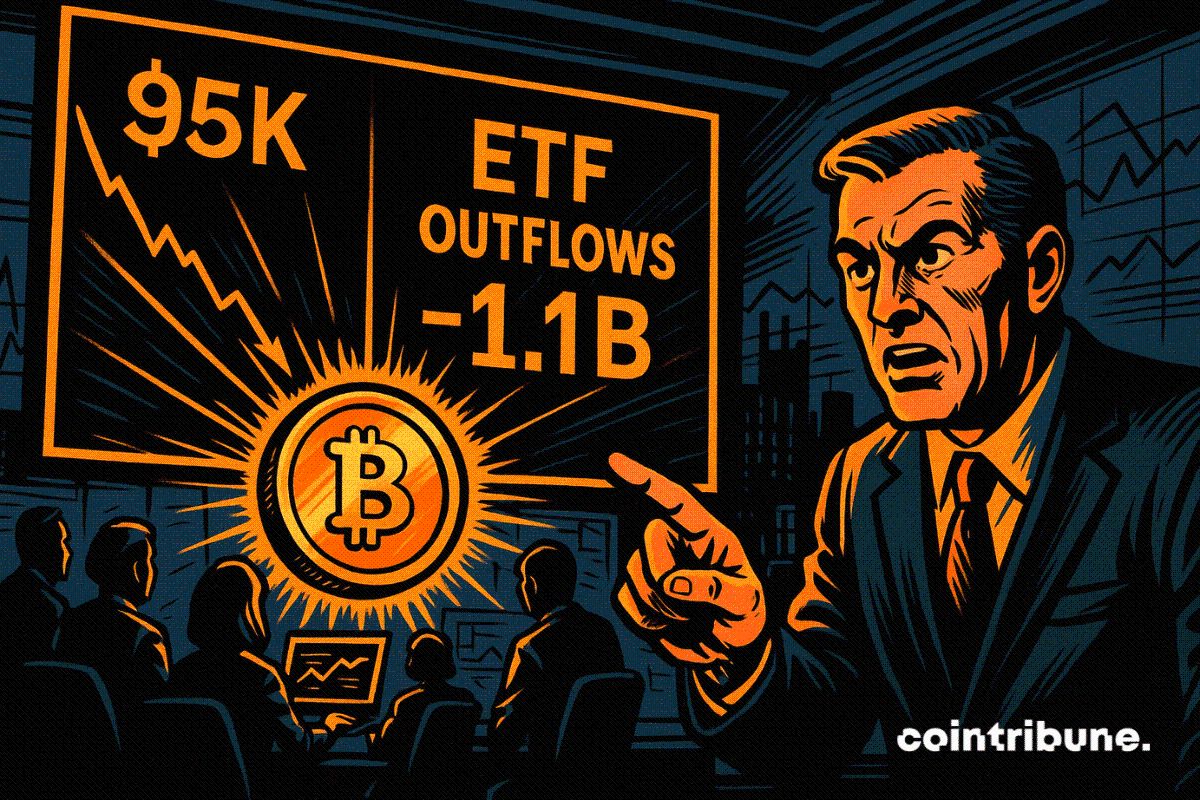Why Experts Believe Zcash Could Replace Bitcoin
As Zcash rallies and privacy becomes crypto’s hottest narrative, comparisons to Bitcoin are intensifying—raising the question of whether the privacy coin could one day challenge the king of crypto.
Zcash (ZEC) has recently garnered significant attention within the cryptocurrency community. Its record-breaking rally and built-in privacy mechanisms have pushed it into the spotlight, amid what many are calling a “privacy season.”
The rise has also led many analysts to draw comparisons between Zcash and Bitcoin, the market’s long-standing leader. Some market watchers argue that the former could eventually “replace” Bitcoin.
Zcash vs Bitcoin: The Battle Over Privacy
It is worth noting that Zcash closely parallels Bitcoin’s economic structure. It was created from the original Bitcoin code. Furthermore, Zcash has a fixed 21 million token supply, as well as a similar halving timetable.
However, the central discussion in the Zcash versus Bitcoin debate focuses on Bitcoin’s absence of privacy features. Zcash utilizes zero-knowledge proofs, specifically zk-SNARKs, enabling shielded transactions on-chain.
These privacy features, built directly into Zcash’s protocol, let users maintain confidentiality over sender, receiver, and amounts. In contrast, Bitcoin’s blockchain is fully transparent. Every transaction, wallet address, and amount transferred is permanently visible on the public ledger.
Recently, Edward Snowden emphasized that Bitcoin’s lack of privacy was its biggest weakness and potential reason for failure.
“The core flaw with Bitcoin. The largest likelihood for why Bitcoin would fail in the long term, is because it’s not private….It is failing as an electronic cash system because cash is largely intended to be anonymous,” Snowden commented.
If Bitcoin were ever to falter, the question remains: who could take its place? Many analysts believe the strongest contender would be Zcash.
In a recent post on X (formerly Twitter), Thor Torrens warned that Bitcoin’s era may be coming to an end. Responding to a developer’s plea for privacy upgrades to Bitcoin, Torrens argued that such features must be integrated into a blockchain’s base layer from the outset, something he believes Bitcoin can no longer do.
“It’s too late for bitcoin. Privacy has to be baked in at the L1 it’s not something you can just add later after the fact. This is why Satoshi left. He knew this. This is what Zcash will take the number 1 spot and replace bitcoin. Bitcoin is http Zcash is https,” he stated.
He previously claimed that Zcash embodies Satoshi Nakamoto’s original vision of private, peer-to-peer digital cash. Thus, it will ultimately succeed Bitcoin.
Additionally, analyst Max Belfort forecasted that privacy will drive the next phase of the cryptocurrency revolution, with Zcash at the forefront.
“ZCash isn’t a trade. It’s a statement. Bitcoin gave us freedom. ZCash protects it. If Bitcoin was the revolution, ZCash is the shield that keeps it alive,” the analyst remarked.
These insights reflect strong confidence in Zcash’s long-term prospects. Yet, its potential to replace Bitcoin remains a subject of debate. Over the course of more than a decade, Bitcoin has solidified its role as the leading store-of-value asset, often referred to as “digital gold.”
Its scarcity and growing institutional adoption have strengthened its position as the cornerstone of the crypto market. While Zcash introduces a compelling privacy layer and appeals to those seeking confidentiality in transactions, Bitcoin’s widespread recognition, liquidity, and integration into traditional finance make it a far more entrenched and resilient asset.
Disclaimer: The content of this article solely reflects the author's opinion and does not represent the platform in any capacity. This article is not intended to serve as a reference for making investment decisions.
You may also like
Bitcoin Updates Today: Institutional Bitcoin Buzz vs. Arbitrage Facts: Hayes Reveals the Strategy
- Arthur Hayes challenges institutional Bitcoin bullishness, arguing major players exploit arbitrage strategies rather than hold long-term conviction. - Harvard University's $442.8M IBIT stake and 15% Q3 surge in BlackRock's ETF holders highlight growing institutional adoption. - Hayes reveals "basis trade" tactics where large holders buy IBIT shares while shorting Bitcoin futures to capture yield differentials. - ETF flows show $2.3B November outflows and Wisconsin's $300M IBIT liquidation, reflecting vol

Bitcoin News Update: Bitcoin Drops Under $95,000 as ETFs See $3.2 Billion Outflow, Institutional Interest Declines
- Bitcoin fell below $95,000 on Nov. 17, 2025, due to ETF outflows, weak institutional demand, and broken technical support levels. - Digital asset products saw $3.2B in outflows over three weeks, with U.S. spot Bitcoin ETFs losing $1.1B in a record fourth-largest weekly outflow. - MicroStrategy bought 8,178 BTC for $835.6M, reaffirming its commitment to Bitcoin as a treasury asset despite market weakness. - Solana and Ethereum fell over 15% and 11%, respectively, as broader crypto markets weakened amid fa

Bots Take the Lead Online as Automated Content Reshapes User Experience

Stobox and REAL Finance Join Forces to Revolutionize RWA Infrastructure

